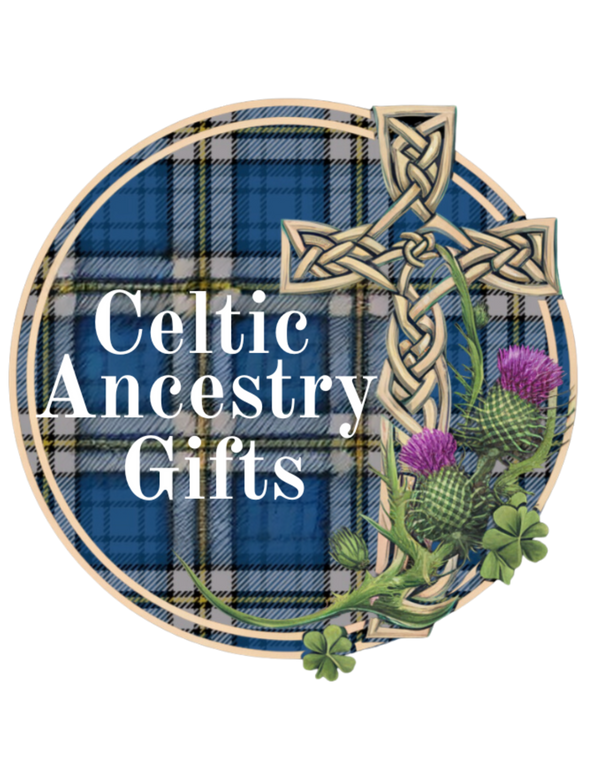
The Enduring Spirit of Scottish Clan Burns: A Journey Through History, Heritage, and Celebration
Share
Unveiling the Origins and Early History of Clan Burns
The tapestry of Scottish history is rich with the tales of its ancient clans, each with unique origins, traditions, and contributions. Among these, the surname Burns, while perhaps not as widely known for martial prowess as some Highland clans, holds a significant place, particularly in the Lowland regions of Scotland. The name 'Burns' is generally understood to be of topographical origin, derived from the Middle English word 'burn,' meaning a stream or brook. This suggests that early bearers of the name were likely families who settled near watercourses, a common practice in the establishment of communities across Scotland's fertile landscapes. The name's prevalence is noted across various Lowland shires, including Ayrshire, Dumfriesshire, and Perthshire, indicating a widespread presence and adaptation to different regional environments. While specific founding figures or a singular 'chief' in the traditional Highland sense are less documented for the Burns name, its history is woven into the fabric of Scottish settlement and societal development.
The early history of the Burns name is intrinsically tied to the agricultural and mercantile life of the Scottish Lowlands. Unlike the clan structures of the Highlands, which often revolved around military leadership and territorial control, Lowland families like the Burns were more integrated into the burgeoning burghs and the feudal landholding system. Records suggest a gradual dispersion and establishment of families with the surname across these regions, participating in the economic and social life of the developing nation. The strength of the Burns lineage, therefore, lies not in a singular, dominant clan seat, but in the widespread resilience and adaptability of its members through centuries of Scottish history, from medieval times through the turbulent periods of religious and political change.
The Legacy of Robert Burns: Scotland's National Bard
No discussion of the Burns name would be complete without acknowledging its most famous bearer: Robert Burns (1759-1796). Born in Alloway, Ayrshire, Robert Burns rose from humble farming origins to become Scotland's national poet and a celebrated figure in world literature. His profound impact on Scottish culture is immeasurable, with his poetry and songs capturing the spirit, language, and experiences of the Scottish people with unparalleled authenticity and emotional depth. Works such as "Auld Lang Syne," "Tam o' Shanter," "Ae Fond Kiss," and "To a Mouse" are not merely literary achievements; they are cultural touchstones that continue to be recited, sung, and cherished across the globe.
Burns's literary genius lay in his ability to blend profound sentiment with sharp wit, social commentary with heartfelt lyricism. He championed the common person, celebrated the beauty of the Scottish landscape, and explored themes of love, loss, patriotism, and humanity with a universal resonance. His influence extended beyond literature, shaping Scottish identity and inspiring movements for social reform and national pride. The enduring popularity of his work ensures that the name Burns is synonymous with Scottish culture, art, and a deep connection to the nation's soul.
Celebrating Burns Heritage in the Modern Day
In the 21st century, the heritage associated with the Burns name continues to be celebrated with passion and pride. Modern enthusiasts and descendants of the clan can connect with their ancestry in numerous ways, from genealogical research to participating in clan gatherings and cultural events. The resurgence of interest in Scottish heritage has led to a greater appreciation for the symbols and traditions that represent this rich history.
A wonderful way to embrace and display this connection is through specially crafted items that honor the clan. The Burns Clan Crest Scottish Tartan Blanket is a prime example of this. Made from luxuriously soft 100% polyester velveteen, this blanket features a vibrant, one-sided print of the Burns clan crest and traditional tartan pattern. It's designed to be both a cozy companion for chilly evenings and a striking decorative piece, adding a touch of Scottish warmth and heritage to any living space. The fade-resistant design ensures that the clan's colors and crest remain vivid for years to come, making it a durable and cherished item for any home.

Complementing the comfort of the blanket is the Burns Clan Crest Scottish Tartan Mug. This classic ceramic mug, available in 11 oz and 15 oz sizes, is an ideal way to celebrate your Scottish roots every day. It proudly displays the Burns clan crest and tartan, making your morning coffee or evening tea a personal tribute to your heritage. Designed for practicality, these mugs are microwave and dishwasher safe, ensuring that the vibrant design withstands regular use without fading or peeling. They also make for perfect gifts, conveying a sense of shared history and pride for clan members and enthusiasts alike, especially during occasions like Burns Night, Father's Day, or any family gathering.

The Cultural Significance of Burns Night
The most globally recognized celebration tied to the Burns name is Burns Night, observed annually on January 25th, the poet's birthday. This tradition is far more than just a literary commemoration; it is a vibrant cultural event that brings Scots and admirers of Scottish culture together. A typical Burns Supper involves a carefully orchestrated evening featuring:
- The Address to a Haggis: A dramatic recital of Burns's poem before the traditional dish is served.
- Readings and Recitations: Performances of Burns's poetry and songs throughout the evening.
- Toasts: Specific toasts, including the 'Immortal Memory' (a tribute to Burns) and the 'Toast to the Lassies.'
- Traditional Scottish Fare: Often featuring haggis, neeps (turnips), and tatties (potatoes).
Burns Night serves as a powerful reminder of Scotland's cultural heritage, fostering a sense of national identity and pride. For individuals connected to the Burns name, it's a significant occasion to honor their most famous namesake and to celebrate the enduring legacy of Scottish culture. It is during these gatherings that the shared history and spirit of the Burns name truly come alive, connecting past and present generations.
Connecting Generations Through Shared Heritage
In an increasingly globalized world, maintaining a connection to one's heritage provides a grounding sense of identity and belonging. For those with ties to the Burns name, this connection can be fostered through various means, including exploring genealogy, joining clan societies, and engaging with cultural traditions. The historical narrative of the Burns name, rooted in the industrious spirit of the Scottish Lowlands and immortalized by the nation's bard, offers a rich legacy to explore.
By incorporating elements of Scottish heritage into daily life, individuals can keep their ancestral connections alive. The Burns Clan Crest Scottish Tartan Blanket and the Burns Clan Crest Scottish Tartan Mug are more than just merchandise; they are tangible links to this history. They serve as conversation starters, educational tools, and personal keepsakes that allow individuals to proudly showcase their Scottish Burns heritage. These items help to ensure that the stories, the songs, and the spirit of the Burns name continue to be passed down, creating a lasting connection for future generations to cherish and celebrate.

